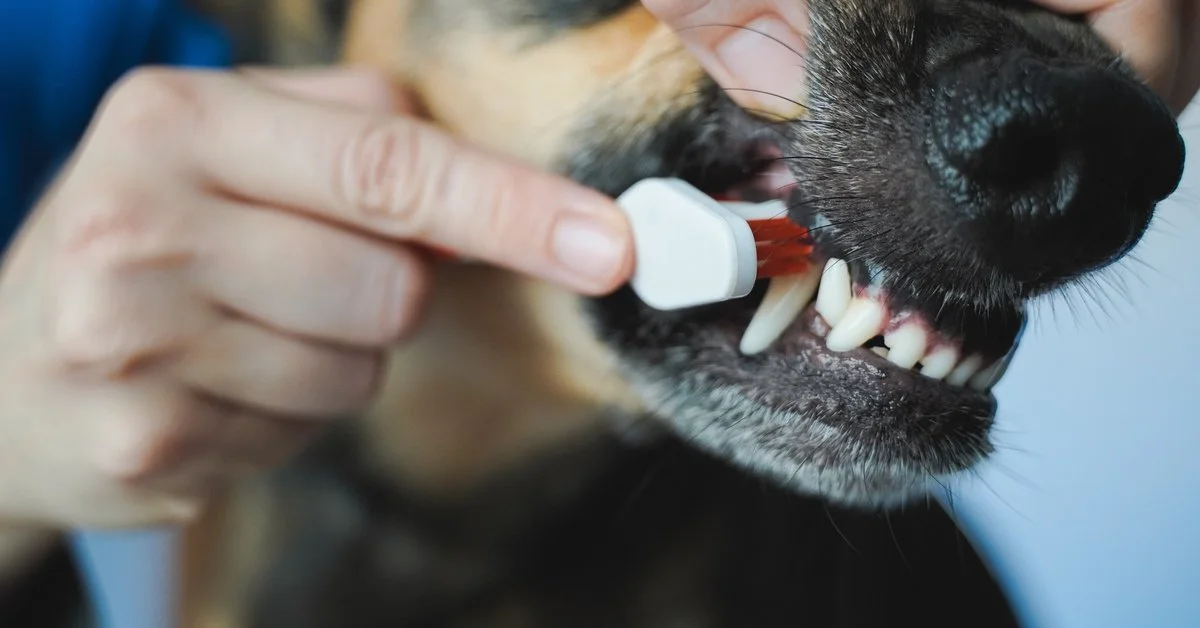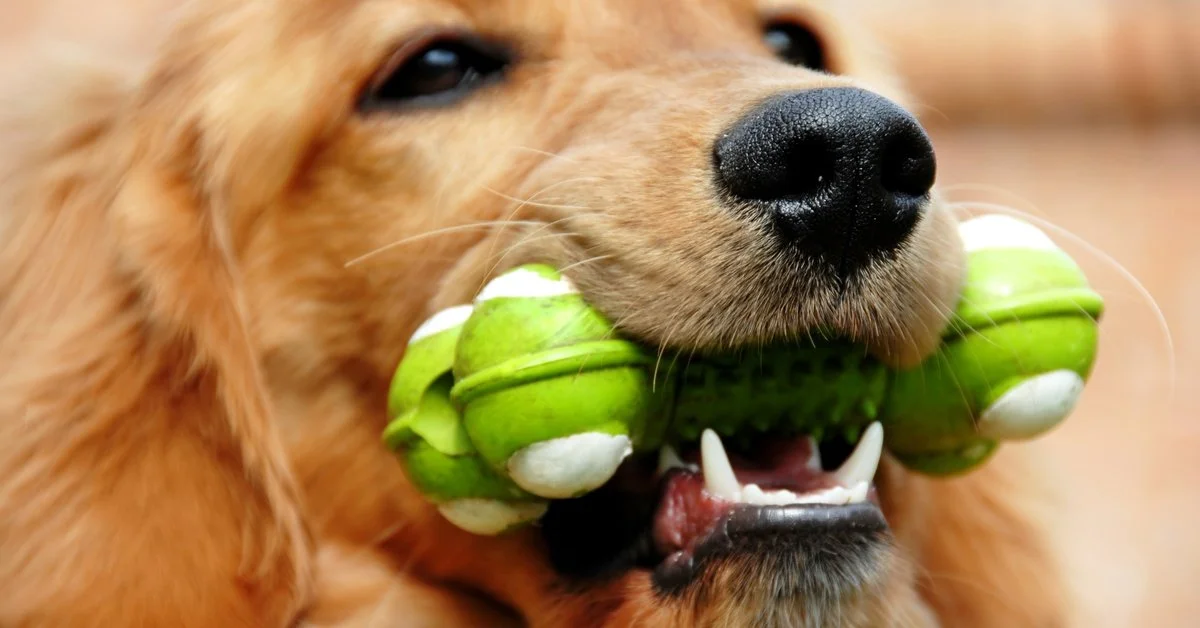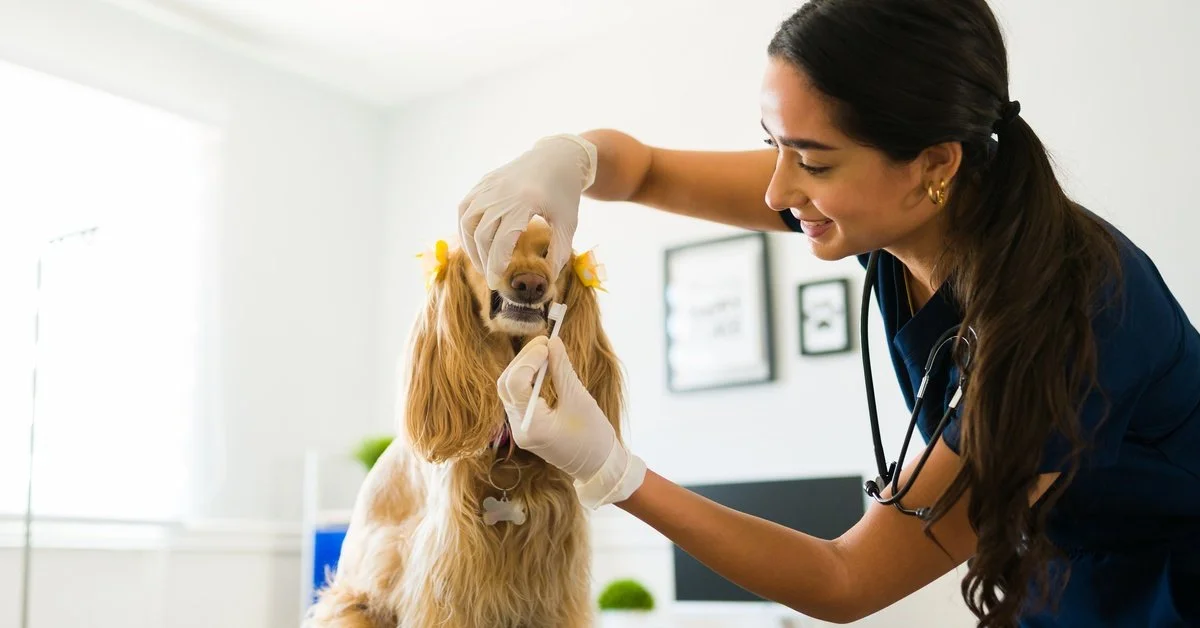Ways To Keep Your Dog's Teeth Clean and Healthy
Keeping your dog’s teeth healthy can affect many aspects of their life. Aside from fending off that unpleasant “dog breath,” good hygiene can help prevent painful infections, reduce the likelihood of tooth loss, and even help protect your dog from certain bacterial issues that can reach their heart or kidneys.
There are several ways to keep your dog’s teeth clean and healthy to prevent some of these common issues. We all love when our dogs smile at us, so here are a few ways you can make sure it’s the biggest and brightest smile they can have.
Start With Regular Tooth Brushing
The simplest way to take care of their teeth is the same thing that we do: brush them. Simple brushing is a great way to prevent plaque buildup and maintain good oral health. Use a dog toothbrush with soft bristles to help protect their gums. Many dog toothpastes come in flavors such as chicken or peanut butter that may make the whole experience more enjoyable for them.
We recommend letting the dog sniff or taste the toothpaste on your finger before you try brushing their teeth with it. You can get the brush under their jowls and gently brush their teeth with light pressure and circular motions. Your pet may not enjoy the process, so you may need to do a few brushing sessions to clean their entire mouth. Dogs can get used to the process with consistency, so just keep at it and make it a part of their care routine.
Choose Dental-Friendly Chew Toys
Many chew toys serve a dual purpose of entertaining your dog and cleaning their teeth through the chewing action. Certain rubber toys and rope toys help scrape away the plaque and massage their gums. Plus, the very act of chewing helps them produce saliva, while can help rinse bacteria from their mouths.
Try to pick toys based on your dog’s size and their chewing intensity. A toy that’s too small may turn into a choking hazard for a big dog, and one that’s too big or hard may be difficult to chew. Remember to replace their worn down toys to keep them effective and prevent your dog from swallowing small pieces.
A good range of chew toys can interest your dog and target different areas of their mouth. Some toys have ridges or nubs specifically designed to reach back molars where plaque commonly accumulates.
Incorporate Dental Treats Into Their Routine
Many modern dental treats are a good way to support your dog’s oral health between brushing sessions. These treats have ingredients that help reduce tartar buildup and freshen their breath. These treats have unique textures and shapes to help clean teeth as your dog chews them.
Look for treats that carry the Veterinary Oral Health Council seal of approval, which indicates they meet specific standards for dental health benefits. Remember to give treats sparingly and that they’re not a substitution for proper brushing and cleaning routines. As the name implies, these are a treat for your dog to enjoy rather than the foundation of their oral hygiene.
Feed a High-Quality Diet
One way to keep your dog’s teeth clean and healthy is by giving them a high-quality diet that supports a healthy mouth. Many types of kibble help scrape plaque off during chewing, while excessive wet food may stick to their teeth and lead to increased bacteria. Some pet food manufacturers produce kibble specifically designed with a texture that provides additional dental benefits.
Aside from a solid diet, your pet should always have access to fresh, clean water. They can use this to rinse out their mouths and get rid of food particles and bacteria. You should replace your dog’s water regularly and clean the dish to make sure they always have the cleanest water possible.
Use Water Additives and Dental Sprays
Aside from frequently changing their water, some pets benefit from additives that can help promote healthy tooth health. Dental sprays may contain enzymes and other ingredients to help break down bacteria and prevent plaque formation.
You can find these sprays at your local pet store, so make sure you find something that works for your specific dog’s size and breed. Whenever possible, try to find additives that don’t affect the taste of the water, as some dogs may refuse to drink water with a distinct or unpleasant taste.
Schedule Professional Dental Cleanings
If you’re particularly worried about your dog’s teeth, you can schedule a professional veterinary visit and see what the problem is. Your vet can use professional tools to remove tartar, especially below the gumline where we typically can’t reach with home care options. Your vet will also examine each tooth for any signs of damage, disease, infection, or other issues.
Most dogs benefit from professional cleanings every one to three years, depending on their age, breed, and oral health status. Smaller dogs often need more frequent cleanings because their teeth are crowded together, making plaque buildup more likely.
Monitor for Signs of Dental Problems
One of the advantages of getting a professional cleaning is that the vet can help you catch signs of dental issues and provide treatment options for better outcomes. You can inspect your dog’s mouth at home and look for red or swollen gums, brown tartar buildup, loose teeth, or any unusual growths. If your dog suddenly has incredibly bad breath, it could be a sign of an infection or other serious problem.
Whenever possible, watch for any changes in your dog’s eating habits such as chewing on one side of their mouth, dropping their food more frequently, or avoiding their favorite chew toys. These signs could indicate pain or discomfort in their mouth and may require professional intervention. If these issues persist, consider scheduling and veterinary visit and getting it checked out.
Take Action for Your Dog's Health
Your dog's dental health requires ongoing attention and care, but the investment pays off in improved comfort, better overall health, and reduced veterinary costs. Brushing is always the most important, but you can incorporate some of these other strategies on top of that and see how it impacts your dog’s oral hygiene.
If you're looking for expert care and support for your furry friend, The Complete Pet Animal Hospital is here to help. Our wide range of veterinary services helps keep your pet healthy and happy at every stage of life. Schedule an appointment with us today and give your pet the professional care they deserve.



